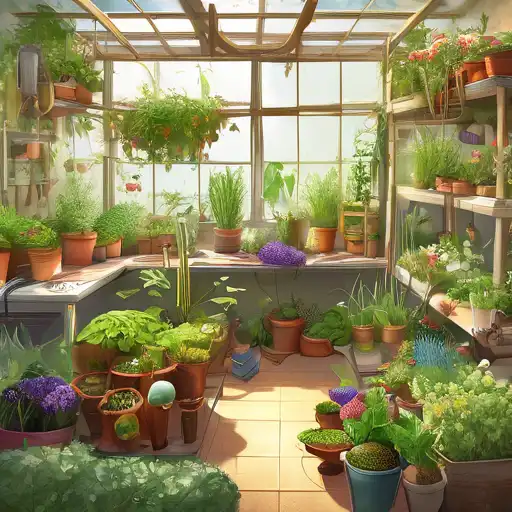Introduction to Home Gardening
Home gardening is a rewarding hobby that not only beautifies your space but also contributes to your health and the environment. Whether you're a beginner or an experienced gardener, this guide will help you master the art of home gardening.
Choosing the Right Plants
Selecting the right plants is crucial for a successful garden. Consider factors like climate, soil type, and sunlight availability. Start with easy-to-grow plants like tomatoes, basil, or marigolds if you're a beginner.
Preparing Your Garden
Before planting, prepare your garden by testing the soil, removing weeds, and ensuring proper drainage. Adding organic matter can improve soil fertility and structure.
Planting Techniques
Follow the planting instructions specific to each plant. Pay attention to spacing, depth, and watering needs. Mulching can help retain moisture and suppress weeds.
Watering and Fertilizing
Water your plants according to their needs, avoiding over or under-watering. Use organic fertilizers to nourish your plants without harming the environment.
Pest and Disease Management
Keep an eye out for pests and diseases. Use natural remedies like neem oil or introduce beneficial insects to control pests without chemicals.
Harvesting and Maintenance
Harvest your crops at the right time to enjoy the freshest produce. Regular maintenance, including pruning and deadheading, will keep your garden thriving.
Advanced Gardening Tips
Once you're comfortable with the basics, explore advanced techniques like companion planting, crop rotation, and creating a compost pile to enhance your garden's productivity.
Companion Planting
Companion planting involves growing certain plants together to deter pests, improve growth, and enhance flavor. For example, planting basil near tomatoes can improve their taste and repel pests.
Crop Rotation
Rotating crops each season prevents soil depletion and reduces disease risk. Plan your garden layout to rotate plant families effectively.
Creating a Compost Pile
Composting kitchen scraps and garden waste creates nutrient-rich soil amendments. It's an eco-friendly way to recycle organic matter and enrich your garden soil.
Conclusion
Home gardening is a fulfilling activity that connects you with nature and provides fresh produce. With patience and practice, you can transform your outdoor space into a thriving garden. Remember, every gardener learns through trial and error, so don't be afraid to experiment and grow.
For more gardening tips, check out our gardening tips section.
